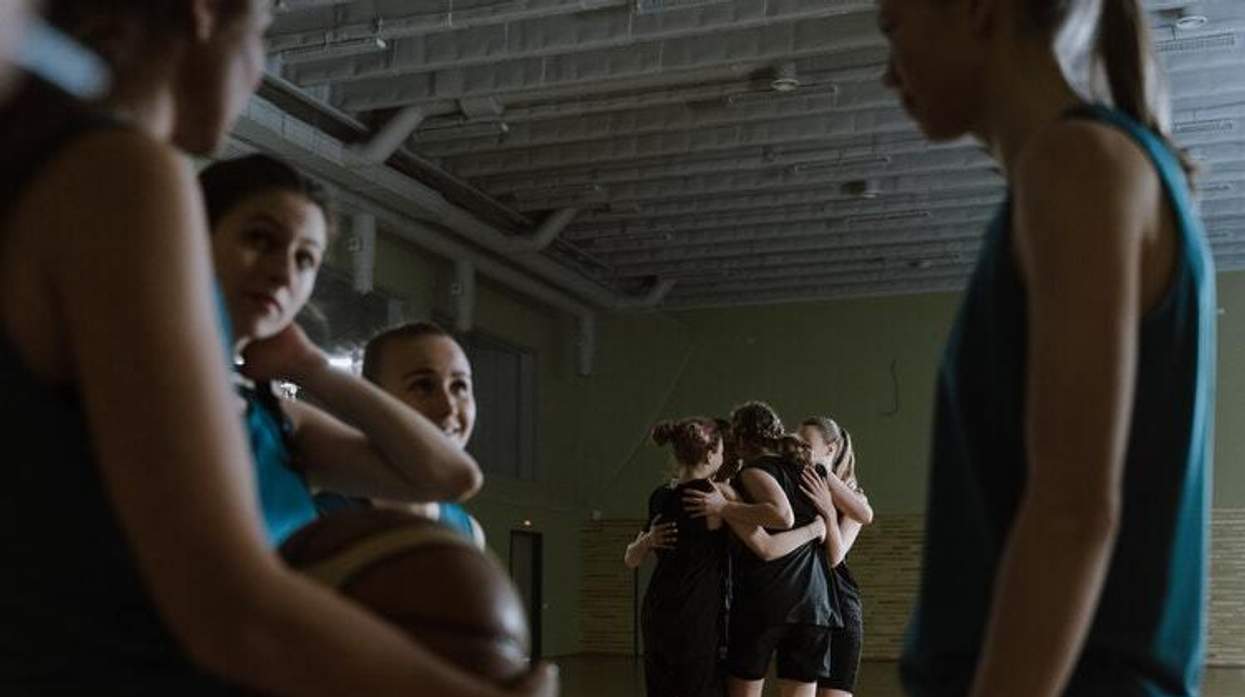Anti-LGBTQ+ bills are headed to two governors for their signatures, marking the first pieces of homophobic or transphobic legislation passed by both chambers of a state legislature this year.
Such bills have been passed by just one chamber in several states, but in Mississippi, both the Senate and House of Representatives have approved a bill barring transgender girls from participating in girls' sports at public schools, colleges, and universities, while in South Dakota both chambers have OK'd a religious refusals bill that stands to enable anti-LGBTQ+ discrimination. Both states have Republican governors who are likely to sign the bills into law.
The Mississippi House approved Senate Bill 2536, titled the Mississippi Fairness Act, Wednesday by a vote of 81-28, the Associated Press reports. The Senate had passed it February 11. It requires that sports teams be designated as male, female, or coed, with female teams "not open to students of the male sex," as established by the student's "internal and external reproductive anatomy," "normal endogenously produced levels of testosterone," and "genetic makeup," as stated in the measure's text. That excludes trans girls and women.
Rep. Becky Currie, who presented the bill in the House, declined to take any questions because she believed all members had already made up their minds on how to vote. "I'm not interested in getting into an argument with you on who's boys and who's girls and who thinks they're what," she said, according to the AP.
It isn't clear if any trans girls or women are seeking to play in school sports in Mississippi. No one asked about that during the Senate debate, but Sen. Angela Hill, its sponsor, said "numerous coaches" had approached her with concerns. Meanwhile, the AP contacted backers of such bills in more than 20 states, including Mississippi, about trans participation, and reports that it found "in almost every case, sponsors cannot cite a single instance in their own state or region where such participation has caused problems."
"Some lawmakers didn't respond to AP's queries," the news service notes. "Others in places like Mississippi and Montana largely brushed aside the question or pointed to a pair of runners in Connecticut." The Connecticut pair, Terry Miller and Andraya Yearwood, both transgender, have won numerous championships, leading to a lawsuit seeking trans exclusion.
Supporters of trans-exclusionary legislation have contended that trans girls and women have an inherent and unfair advantage over their cisgender counterparts because of their body size, testosterone levels, and other physical characteristics. But those who embrace trans inclusion counter that characteristics such as body size vary among all genders and that other factors, such as training, contribute to athletic performance -- and that exclusion of trans athletes further marginalizes a population already struggling for acceptance.
Mississippi Gov. Tate Reeves is likely to sign the bill, given that he's publicly criticized President Joe Biden's executive order against anti-LGBTQ+ discrimination; Reeves particularly singled out the impact on sports in a Twitter post. A similar bill was signed into law in Idaho last year, but it's been blocked by a federal judge while a lawsuit against it is heard.
In South Dakota, the religious refusals legislation, Senate Bill 124, is headed to Gov. Kristi Noem, a major ally of Donald Trump. It was passed by the state's House of Representatives Tuesday after having been approved by the Senate in February. It would ban the state or any of its cities or counties from taking action that would "substantially burden a person's exercise of religion."
Its supporters have said its purpose was to protect churches from closure during the COVID-19 pandemic, but LGBTQ+ activists say the broadly written measure would enable discrimination against the LGBTQ+ community, women, members of minority faiths, and more, if such discrimination is rooted in religious beliefs. It is similar to the 2015 Indiana law that drew backlash and had to be amended, according to the Human Rights Campaign.
"South Dakota's passage of Senate Bill 124 threatens protections for LGBTQ people, women, and people of faith," HRC President Alphonso David said in a press release. "South Dakotans believe in religious liberty and LGBTQ equality -- those two values are not mutually exclusive. South Dakota potentially risks the loss of business opportunities and the revenue that comes with it, significant legal fees, and damage to the state's reputation. We strongly urge Governor Kristi Noem to reject this dangerous and controversial legislation that would invite a world of problems for South Dakota amidst already difficult circumstances for the state and this country."
There was some pro-LGBTQ+ news out of South Dakota Wednesday. A Senate committee voted to quash a bill that would have barred trans girls from competing with cis girls in school sports, the Grand Forks Herald reports. Opponents of the bill, which was passed by the House last month, included some Republicans who thought it would create a bureaucratic nightmare as students would have to document their gender.
And one Republican on the committee, Sen. Helene Duhamel, pointed out that there are very few transgender girls competing in girls-only sports, and her daughters, both college athletes, thought there was no need for such legislation. "They agree with me that this impacts so few, so infrequently," she said. "Why would South Dakota lead the way when the experts are still trying to figure this out?"




































































Charlie Kirk DID say stoning gay people was the 'perfect law' — and these other heinous quotes